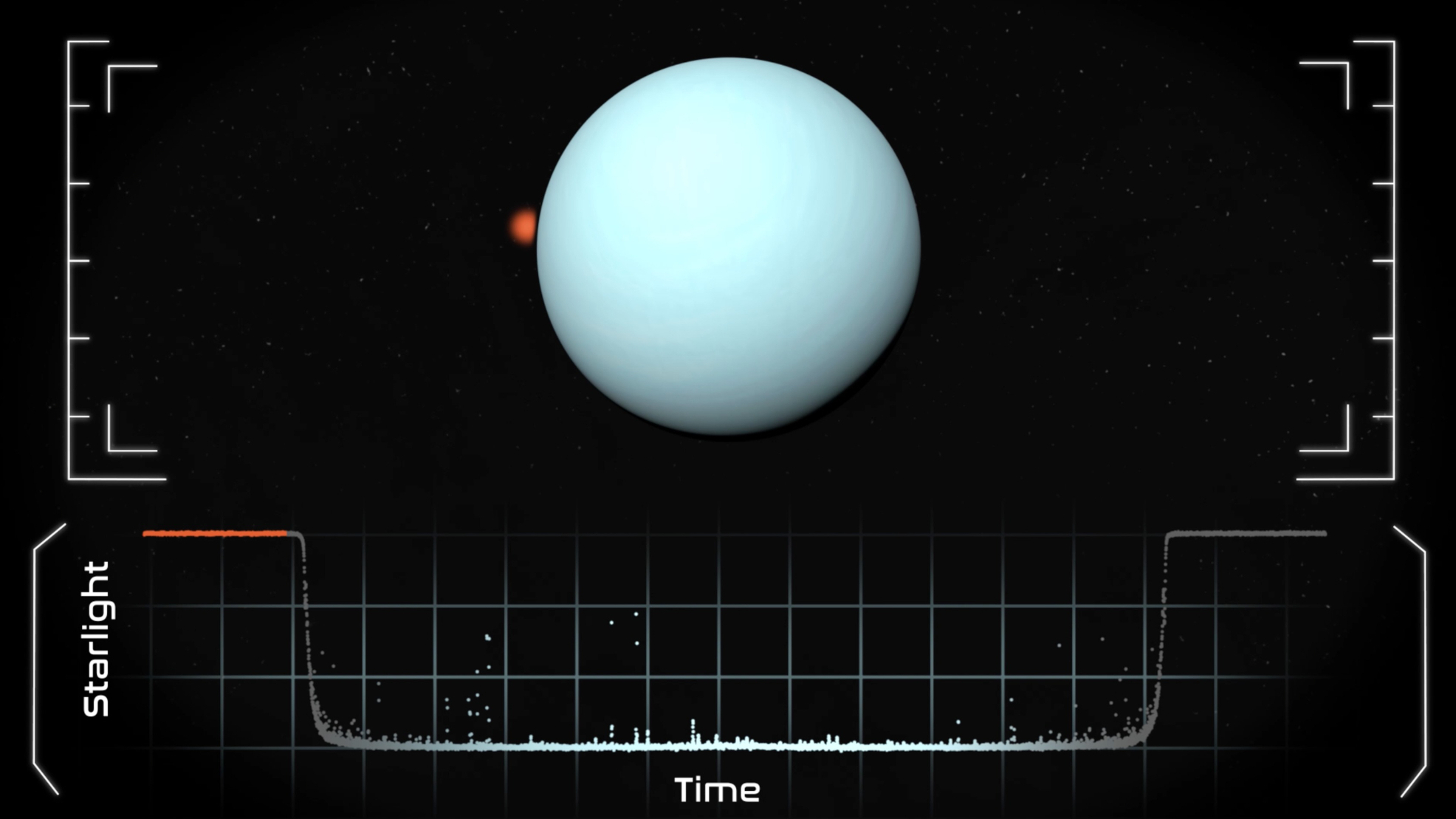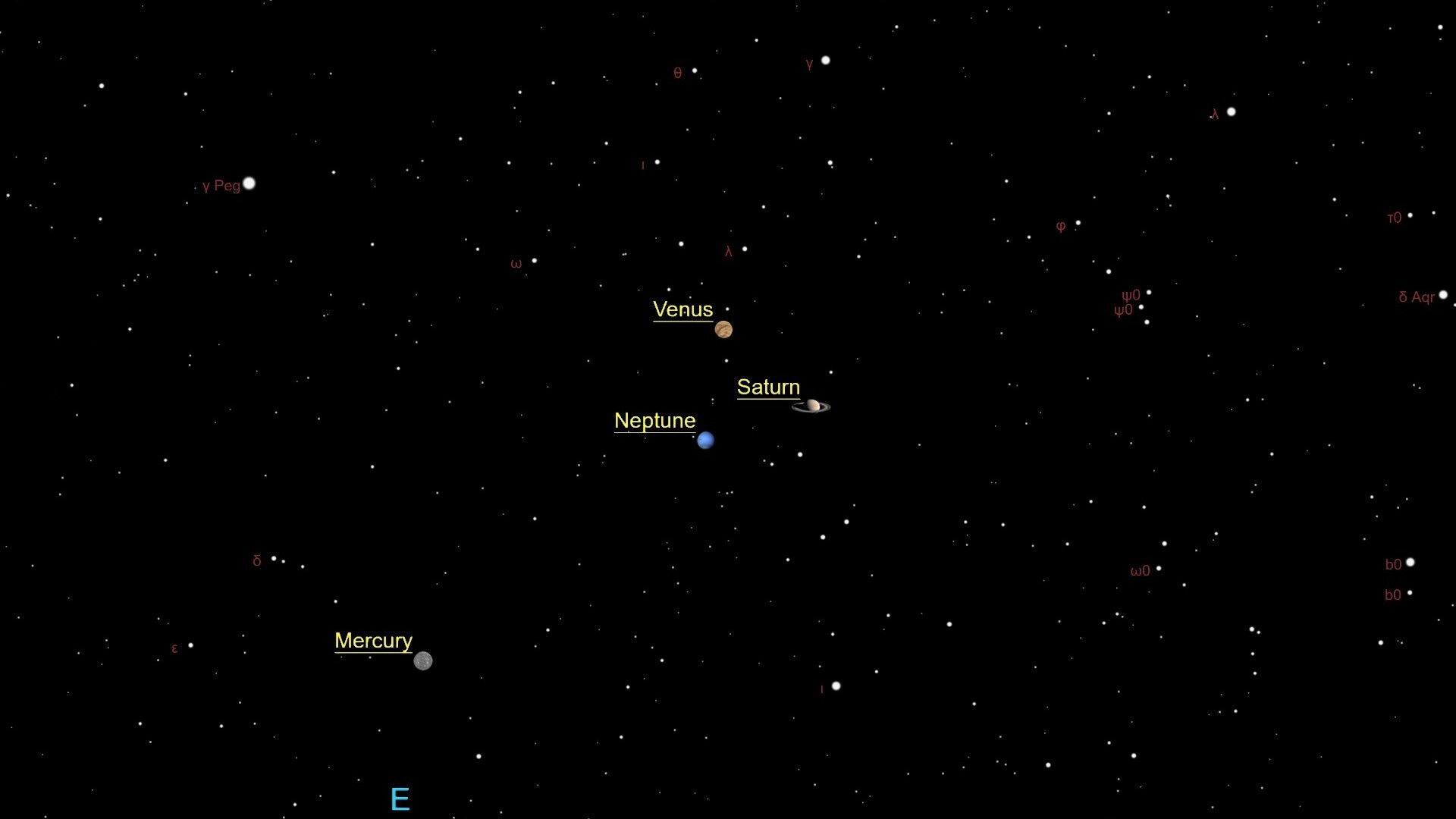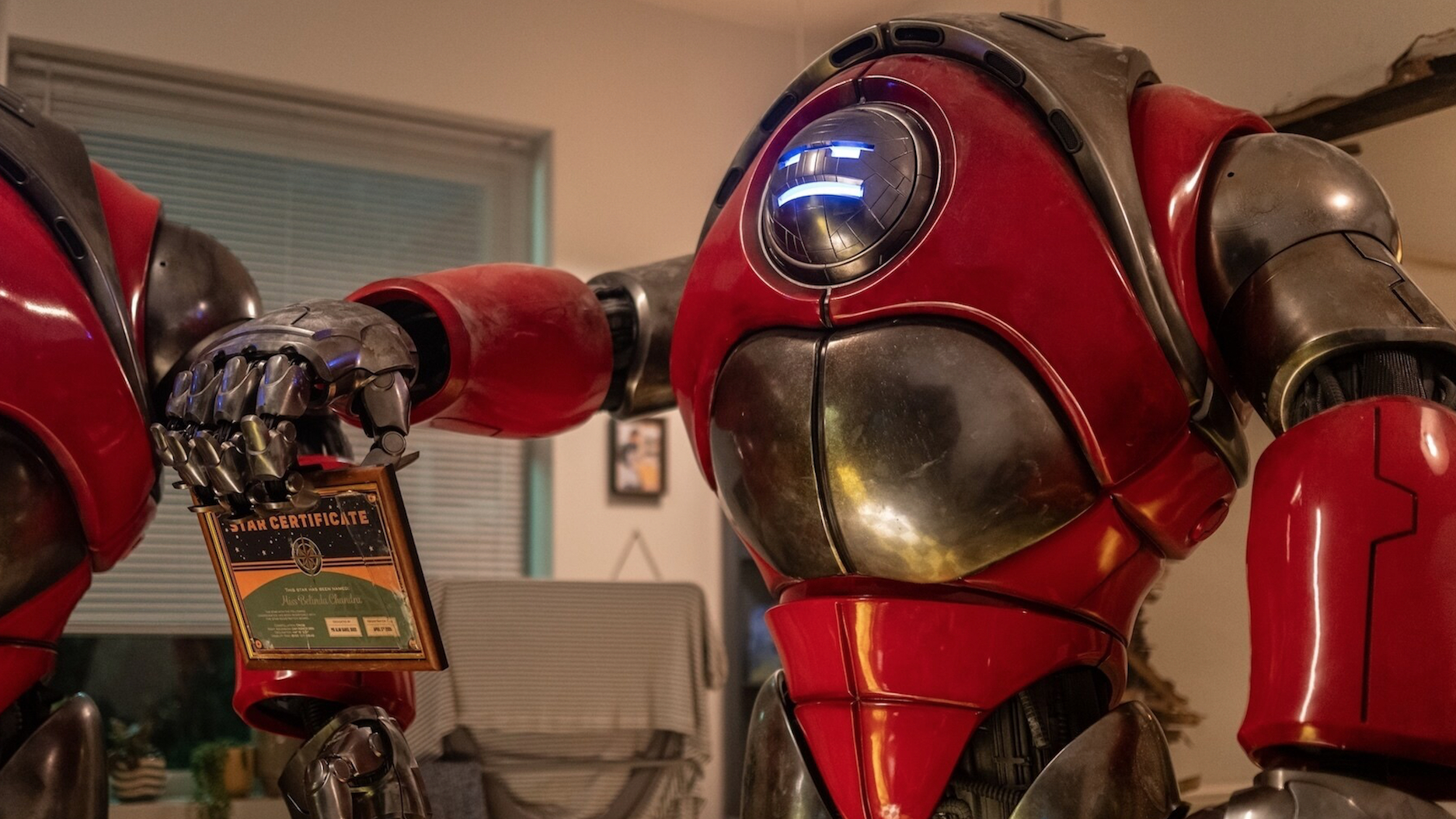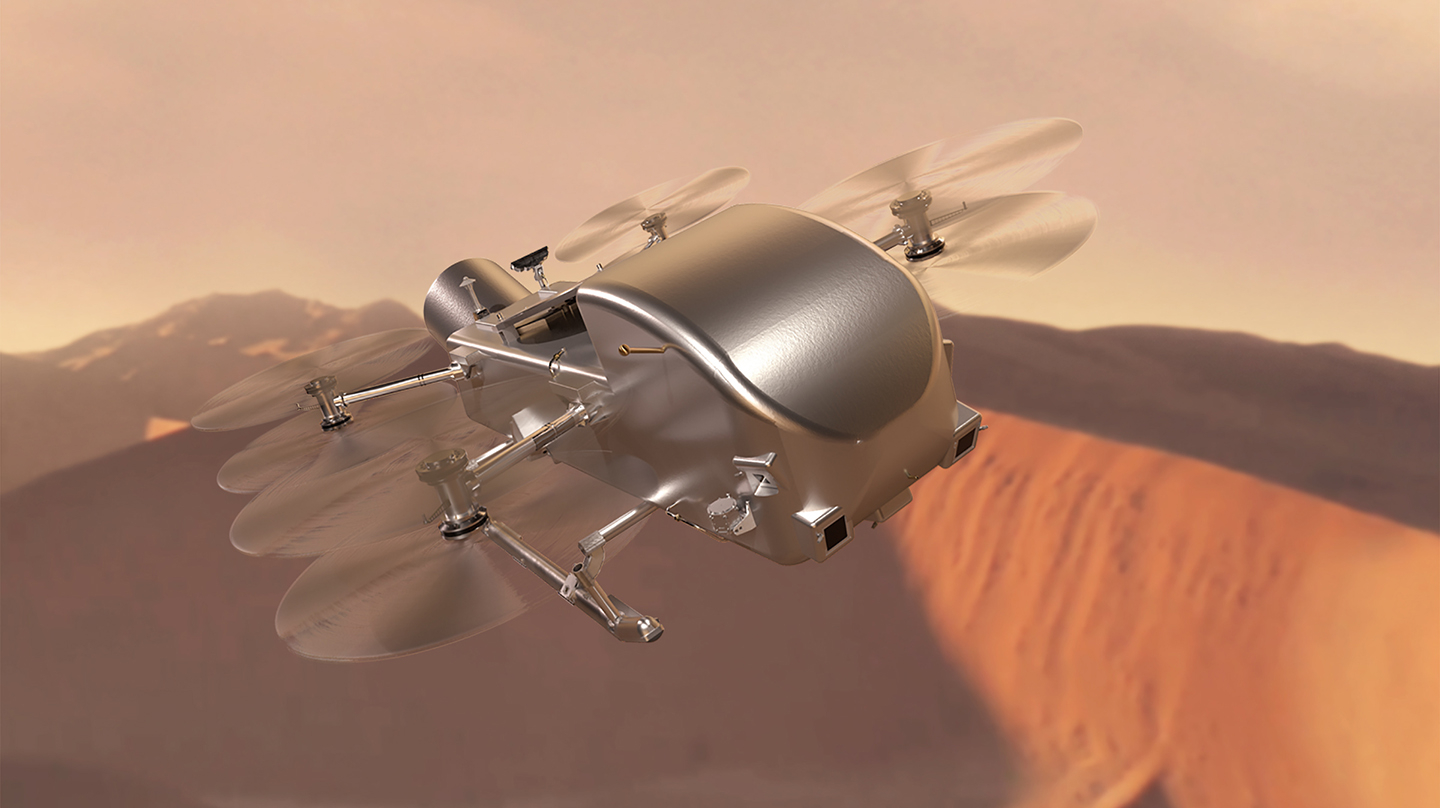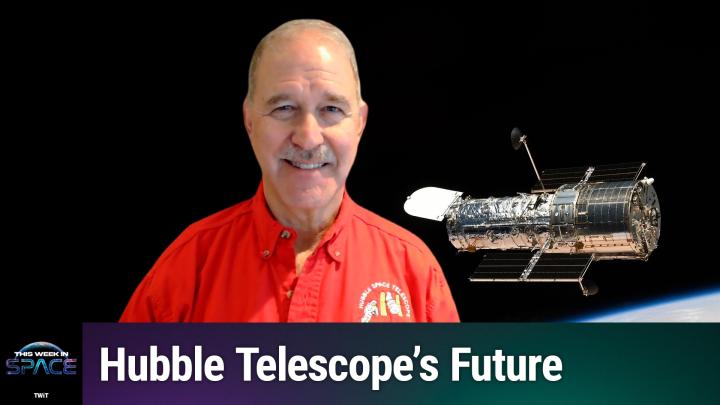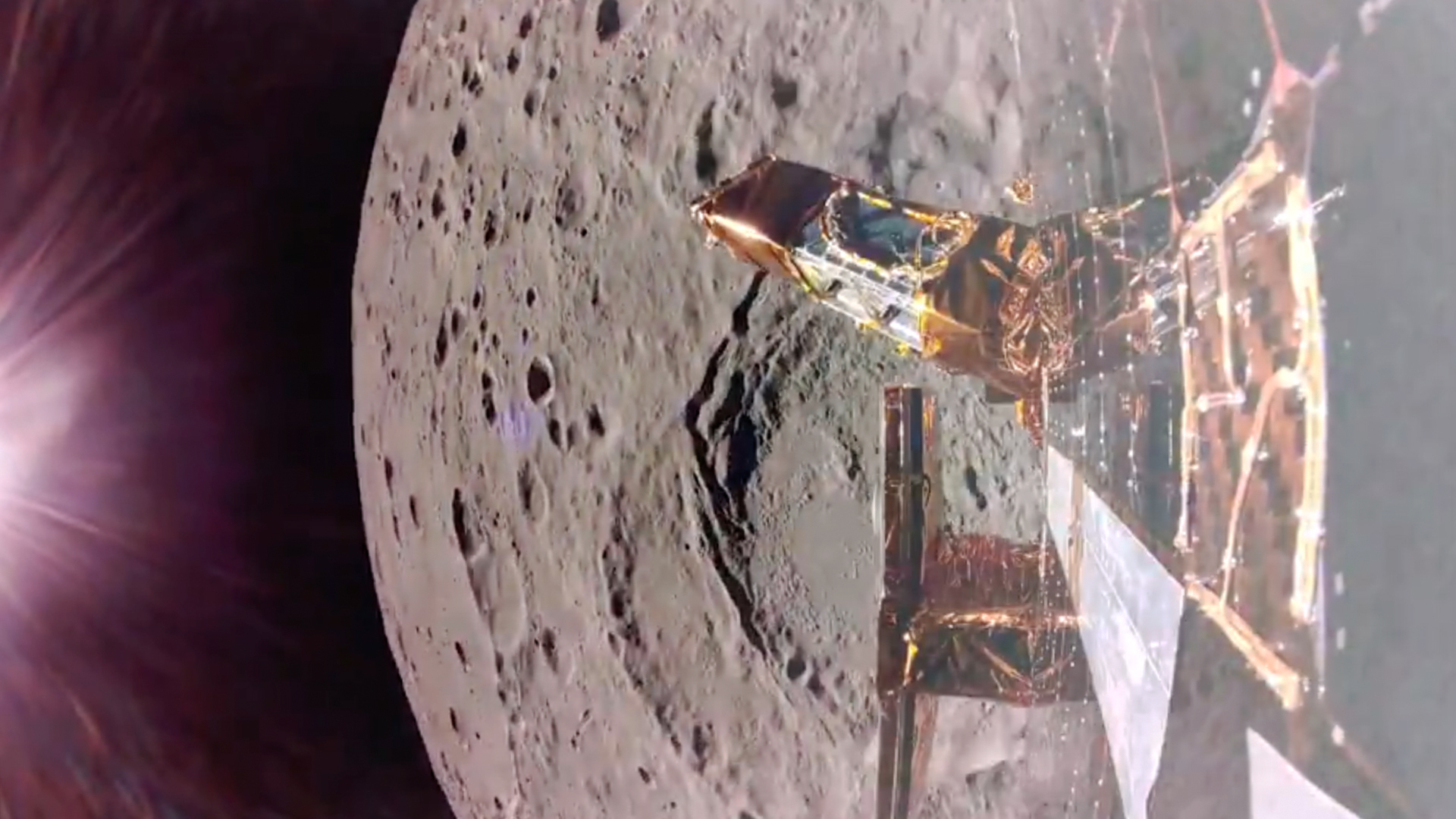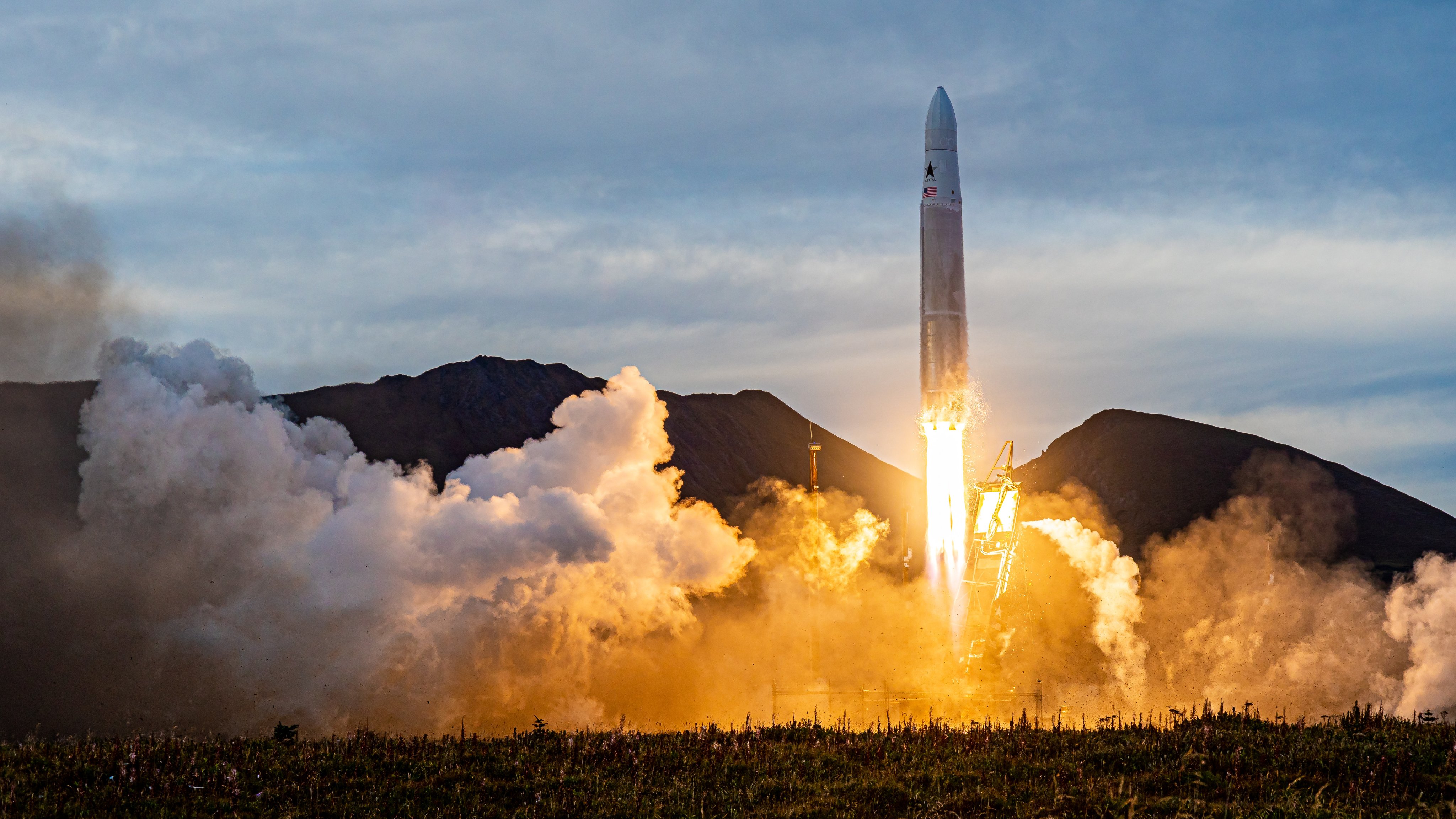
Astra could take its next orbital shot in less than a week.
Astra plans to launch its two-stage, 38-foot-tall (12 meters) Rocket 3.2 from the Pacific Spaceport Complex on Alaska's Kodiak Island between Dec. 7 and Dec. 18, representatives of the California startup announced last month. The window on each day runs from 2 p.m. to 5 p.m. EST (1900 to 2200 GMT; 10 a.m. to 1 p.m. local time in Alaska).
The orbital attempt will be the second for Astra, which aims to claim a sizable chunk of the small-satellite launch market with its line of flexible, cost-effective rockets. The first test flight, in September of this year, ended with a bang about 30 seconds after liftoff. Astra's Rocket 3.1 experienced an apparent guidance issue, prompting controllers to terminate the flight for safety reasons.
Related: The history of rockets
Things are heating up! Here’s a look at Rocket 3.2’s final static fire test ahead of our December 7th launch. Rocket 3.2 is powered by five Delphin electric-pump-fed engines. Made in-house, each engine produces over 6,500 lbs. of thrust. pic.twitter.com/bvDkGBYtocNovember 25, 2020
Initial analyses suggested that a software problem was to blame for the failure. An update to the guidance system software would probably solve the problem, Astra representatives said shortly after the launch, expressing confidence that Rocket 3.1's successor could get off the ground before the end of the year. And it looks like that will indeed come to pass, provided the Alaska weather cooperates and no technical issues crop up.
Rocket 3.2 has already taken a big step toward launch: The vehicle has passed its required series of static-fire tests, Astra announced via Twitter last week. (Static fires, in which first-stage engines blaze up while a rocket remains tethered to the ground, are a common pre-launch checkout.)
Rocket 3.1's failure was not a disaster, and Astra isn't banking on perfection from Rocket 3.2: Company representatives have stressed that they expect it'll take three tries to reach orbit.
Get the Space.com Newsletter
Breaking space news, the latest updates on rocket launches, skywatching events and more!
Mike Wall is the author of "Out There" (Grand Central Publishing, 2018; illustrated by Karl Tate), a book about the search for alien life. Follow him on Twitter @michaeldwall. Follow us on Twitter @Spacedotcom or Facebook.
Join our Space Forums to keep talking space on the latest missions, night sky and more! And if you have a news tip, correction or comment, let us know at: community@space.com.

Michael Wall is a Senior Space Writer with Space.com and joined the team in 2010. He primarily covers exoplanets, spaceflight and military space, but has been known to dabble in the space art beat. His book about the search for alien life, "Out There," was published on Nov. 13, 2018. Before becoming a science writer, Michael worked as a herpetologist and wildlife biologist. He has a Ph.D. in evolutionary biology from the University of Sydney, Australia, a bachelor's degree from the University of Arizona, and a graduate certificate in science writing from the University of California, Santa Cruz. To find out what his latest project is, you can follow Michael on Twitter.
